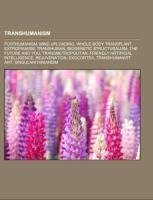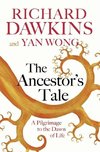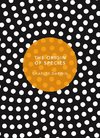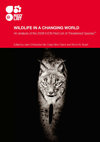
-
 Anglický jazyk
Anglický jazyk
Transhumanism
Autor: Source: Wikipedia
Source: Wikipedia. Pages: 59. Chapters: Posthumanism, Mind uploading, Whole-body transplant, Extropianism, Transhuman, Biogenetic structuralism, The Future and You, Transmetropolitan, Friendly artificial intelligence, Rejuvenation, Exocortex, Transhumanist... Viac o knihe
Na objednávku, dodanie 2-4 týždne
17.46 €
bežná cena: 19.40 €
O knihe
Source: Wikipedia. Pages: 59. Chapters: Posthumanism, Mind uploading, Whole-body transplant, Extropianism, Transhuman, Biogenetic structuralism, The Future and You, Transmetropolitan, Friendly artificial intelligence, Rejuvenation, Exocortex, Transhumanist art, Singularitarianism, Human enhancement, Liberal eugenics, Emerging technologies, Techno-progressivism, Parahuman, Outline of transhumanism, Orion's Arm, Libertarian transhumanism, Indefinite lifespan, Macrolife, Foresight, Eclipse Phase, Transhuman Space, Postgenderism, Democratic transhumanism, Chemical brain preservation, Russian cosmism, Cognitive liberty, Proactionary principle, No Hero, Morphological freedom, Pharmacological Calvinism, Pantropy, Participant evolution, Better Angels, Biohappiness, Transhumanism in fiction, Differential technological development, Homo Excelsior. Excerpt: Transhumanism, often abbreviated as H+ or h+, is an international intellectual and cultural movement that affirms the possibility and desirability of fundamentally transforming the human condition by developing and making widely available technologies to eliminate aging and to greatly enhance human intellectual, physical, and psychological capacities. Transhumanist thinkers study the potential benefits and dangers of emerging technologies that could overcome fundamental human limitations, as well as study the ethical matters involved in developing and using such technologies. They predict that human beings may eventually be able to transform themselves into beings with such greatly expanded abilities as to merit the label "posthuman". Transhumanism is therefore viewed as a subset of philosophical "posthumanism". The contemporary meaning of the term "transhumanism" was foreshadowed by one of the first professors of futurology, FM-2030, who taught "new concepts of the Human" at The New School of New York City in the 1960s, when he began to identify people who adopt technologies, lifestyles and world views transitional to "posthumanity" as "transhuman". This hypothesis would lay the intellectual groundwork for British philosopher Max More to begin articulating the principles of transhumanism as a futurist philosophy in 1990, and organizing in California an intelligentsia that has since grown into the worldwide transhumanist movement. Influenced by some great works of science fiction, the transhumanist vision of a transformed future humanity has attracted many supporters and detractors from a wide range of perspectives. Transhumanism has been condemned by one critic, Francis Fukuyama, as the world's most dangerous idea, while one proponent, Ronald Bailey, counters that it is the "movement that epitomizes the most daring, courageous, imaginative, and idealistic aspirations of humanity". Cover of the first issue of h+ Magazine, a web-based quarterly publication that focus
- Vydavateľstvo: Books LLC, Reference Series
- Rok vydania: 2013
- Formát: Paperback
- Rozmer: 246 x 189 mm
- Jazyk: Anglický jazyk
- ISBN: 9781156624432












